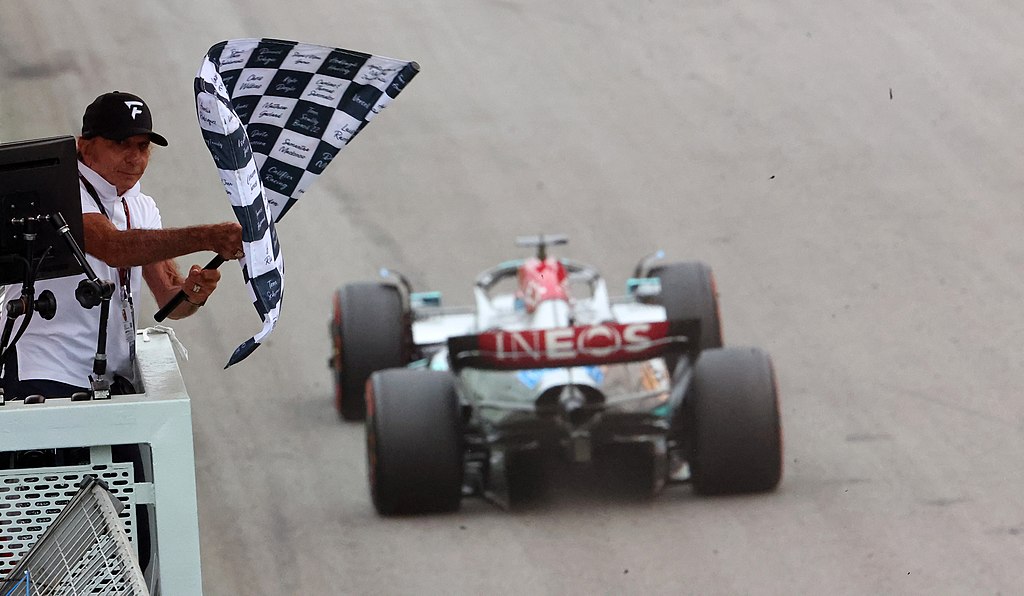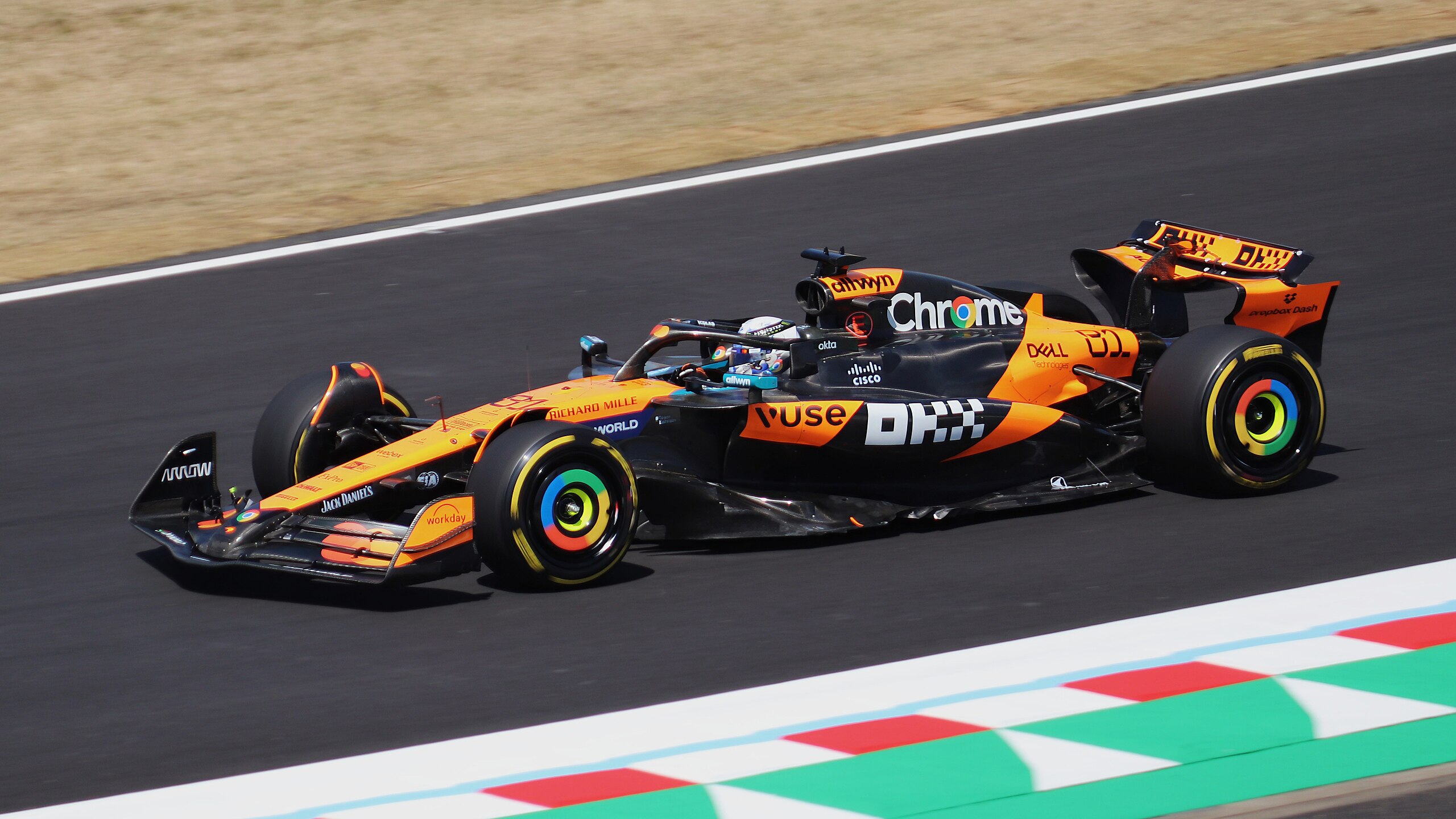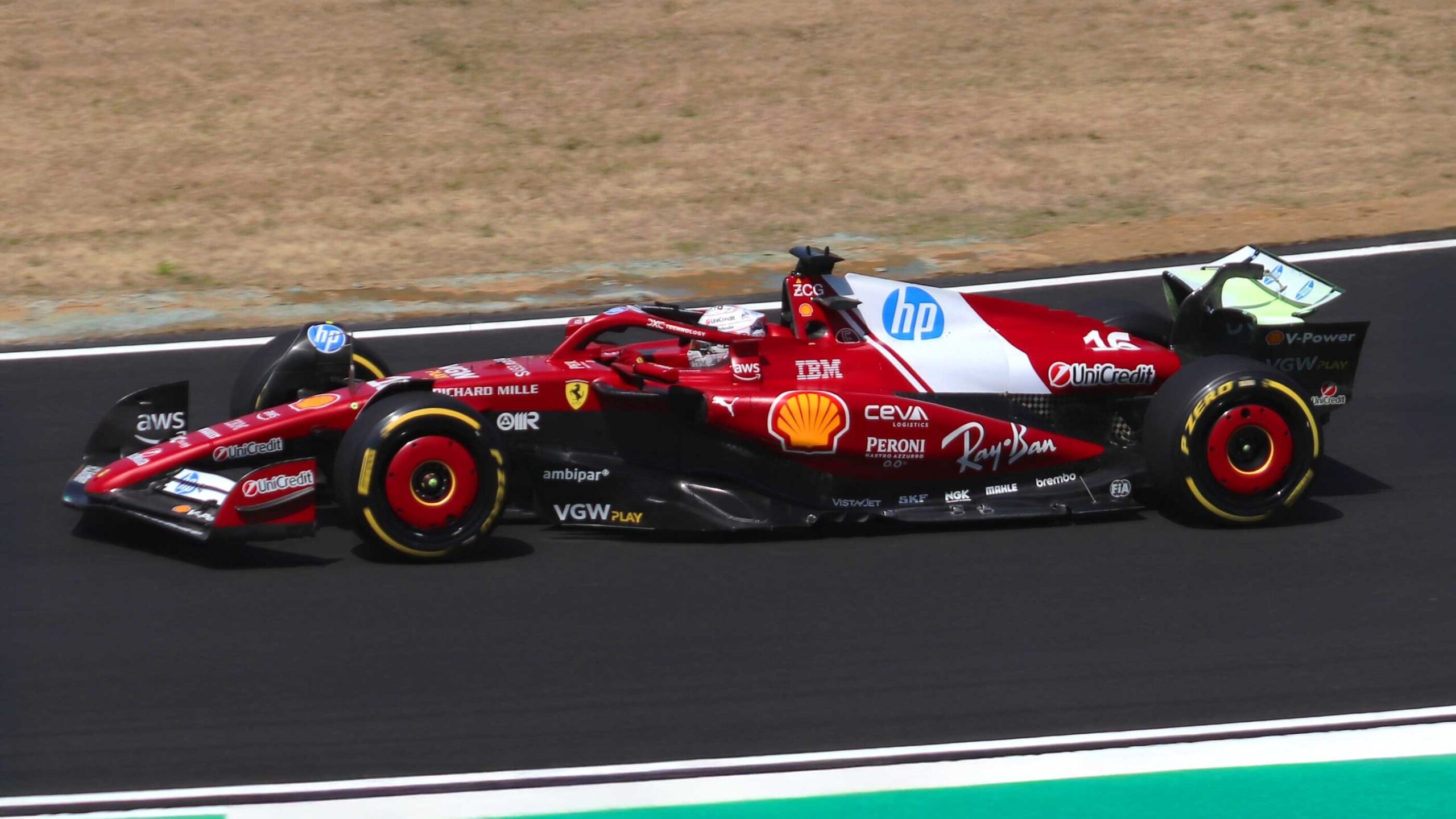Are you willing to sponsor?
Are you ready to explore the transformative power of athlete sponsorship for your brand? Click here to learn more about how sponsorship can help brands grow and thrive in the exciting world of motorsports.
By Riccardo Tafà| Posted September 26, 2023 | In Formula 1, Formula1
Formula 1 is one of the most popular and lucrative sports in the world, with an estimated 1.5 billion fans globally. As such, it offers tremendous marketing and branding potential for sponsors. However, Formula 1 as a sport is facing increasing scrutiny regarding its environmental impact and sustainability practices. This pressure is also being felt by sponsors, who must balance achieving their business objectives with contributing positively to society and the environment. In this blog, we’ll explore how Formula 1 sponsorship can create value for brands, while also enabling sponsors to make a meaningful impact through corporate social responsibility (CSR) initiatives.
Formula 1 provides unparalleled global reach and engagement opportunities. Over its 70-plus-year history, it has become woven into the cultural fabric of countries across Europe, Asia, the Americas, and the Middle East. Grands Prix are enormous international events, while TV viewership and social media interactions number in the billions. This profile and prestige is why Formula 1 commands such huge sponsorship deals. Companies like DHL, Rolex, Aramco, Heineken and Petronas pay tens of millions annually to partner with teams and the sport overall. Reviews consistently show sponsorships generate increased brand awareness and affinity. For example, research by Nielsen found that brand awareness for the former sponsor of the F1 Championship, Emirates, grew from 35% to 77% after just two years of sponsoring the F1 Circus.
These partnerships also provide extensive hospitality, employee engagement, and networking opportunities. The glamour and excitement of F1 hospitality allows sponsors to build relationships with stakeholders. Brands can also leverage the engineering excellence and cutting-edge technology of F1 to highlight their own innovation and performance. With the advent of F1’s budget cap era in 2021, sponsors are taking on even more importance to make up funding shortfalls for teams. For these reasons, experts predict global F1 sponsorship revenue could top $2 billion in 2023.
However, Formula 1 faces rising criticism over its environmental impact. F1 races and testing logged over 115,000 air miles in 2019. The logistics, facilities, and racing involve massive energy consumption and carbon emissions. Consumer studies show that sustainability is increasingly important to fans as well. YouGov found 71% of millennial F1 viewers want a greater sport focus on eco-friendly practices.
In response, F1 established a sustainability strategy in 2019 targeting net zero carbon status by 2030. Initiatives include efficient logistics, reduced plastic use, responsible sourcing, and exploring synthetic fuels. Race organizers are also taking steps like offering public transport incentives to reduce spectator emissions. These efforts are ramping up, with F1 setting ambitious interim targets for 2025 around facility energy use, waste, and sustainable materials.
For sponsors, this heightens the need for responsible partnerships that create social value, not just business returns. With brands like Qatar Airways, Salesforce, and Aramco signing deals recently, there is clearly still strong commercial interest in F1 sponsorship. However, fans are monitoring sponsor contributions and will reward brands aligning with F1’s sustainability drive. Nielsen’s research found 60% of fans agree sponsors should help teams be more environmentally friendly.

Many F1 sponsors are embracing CSR initiatives to showcase purpose and values. Here are some current examples of brands using their partnerships for social impact:
Heineken (F1 Global Partner since 2016)
Aramco (F1 Team Partner for Aston Martin)
AWS (F1 Insights Partner)
 5 Key Tips for Impactful F1 Sponsorships
5 Key Tips for Impactful F1 SponsorshipsFor brands exploring F1 sponsorship, here are 5 tips to create maximum value and positive impact:
Formula 1 is at the beginning of a journey to redefine itself as a sport that showcases exciting racing while also championing environmental and social progress.
Pressure will continue to mount through regulation, consumer action, and changing social expectations. Sponsors who embrace this evolution through values-driven partnerships will earn rewards in brand reputation and fan sentiment.
Those who ignore it face backlash, like when Greenpeace protested Shell’s Ferrari sponsorship in 2022. But with creativity, innovation, and commitment, there is an opportunity for sponsors to use F1 as a platform for genuine climate action and social impact.
As the push for sustainability reshapes sporting, brand, and consumer landscapes, responsible sponsorships in F1 can serve as a powerful example to other industries.
Is the union of F1 and CSR genuine, or is it another marketing stunt? The challenge lies in finding the balance between genuine impact and the allure of green PR. Cynics argue that these endeavors are mere greenwashing—a facade. But while criticisms exist, the shift towards responsibility is palpable.
We stand on the brink of an era where racing and responsibility coexist. As technology advances and societal expectations shift, the bond between F1 and CSR is only set to deepen. The symbiosis of F1 and CSR is not just commendable but essential. As we gear up for races in the future, the real victory lies not just in crossing the finish line but in driving meaningful change.
Are you ready to explore the transformative power of athlete sponsorship for your brand? Click here to learn more about how sponsorship can help brands grow and thrive in the exciting world of motorsports.

Managing Director for RTR Sports, Riccardo graduated in law at the University of Bologna. He began his career in London in PR, then started working in two and four-wheelers. A brief move to Monaco followed before returning to Italy. There he founded RTR, first a consulting firm and then a sports marketing company which, eventually, he moved back to London.
The online platform where you can discover the latest trends, strategies and insights from the exciting world of sports marketing.
View our blog
July 1, 2025
In the complex and exciting world of Formula 1, performance no longer belongs exclusively to wind tunnels and race strategies. It also unfolds in boardrooms, brand labs, and experiential mark[...]
Read More
June 11, 2025
The 2026 calendar of the Formula 1, officially announced on June 10, 2025, includes a season of 24 Grands Prix that will cross five continents and introduce new venues, logistical variations [...]
Read More
June 4, 2025
When Liberty Media acquired Formula 1 in 2017, revenue from sponsorship of the championship was around $272 million. Eight years later, that figure seems like an echo of a bygone era. By 2025[...]
Read MoreIn an era where it is possible to get anywhere with a click, there is a strong temptation to approach teams and properties directly for sponsorship projects.
By doing so, we are convinced that we are shortening the value chain, saving time and money. However, these DYI methods are anything but risk-free and what initially appears to be a competitive advantage soon turns into a problem that is difficult to resolve. That’s why there are agencies. And this is why you should rely on us for your sponsorships.
When first approaching a sponsorship or sports marketing project, it is difficult to know immediately which stakeholders are correct, what the decision flow is, and what the right timelines are for each process. Sports is a very specialized field of action, and fitting effectively into its paths can take a lot of time and therefore money. We, on the other hand, know referents and spheres of action and know who to talk to, when and how. So you are also more effective.
Sports is an immense passion, and for our heart colors we would be willing to do anything. But business is a different business, and it is important to make the best possible strategic decisions based on independent research, statistics and reliable data. A sports marketing and sports sponsorship agency like RTR has an objective, 360-degree picture of the scenario and can tell you what is really best for you: which sport, which athlete, which team. This is because we possess a great deal of data and information on ratings, segmentation and attitudes. Because the numbers don’t lie. Never.
Activations are the real heart of sports sponsorship. Without them, there remains only a blank sticker on a motorcycle, car or uniform and no contact with the public, no emotional connection, no impact on the bottom line. Then how do you do it? It certainly won’t be the teams or the athletes who will help you leverage sponsorship and enjoy the many marketing rights you have paid for. To bring out the best in a sports marketing project you need an agency that knows how to use sponsorship to engage the fanbase on the Web, to reach out to Shopping Centers, to organize hospitality, to develop B2B and B2C opportunities, and to get “your” athletes in front of millions of potential consumers.
Would you ever go to the dealer who sold you the car and ask if the competitor’s car is better? No, of course. So, how do you expect to get firm measurements of the effectiveness of your sponsorship if you do not rely on someone super partes? At RTR, we have always worked with independent third-party agencies that allow us to know the return on any exposure of your brand on TV and in the media. In addition, we believe in calculating ROI as the ultimate measure of your success-so we can tell you for every penny you spend how much you are making.
We have been involved in sports sponsorship and sports marketing for more than 15 years. We are consultants in the sense that our goal is to maximize your investment, but we are also an agency that manages the project from start to finish. We have been doing this since 1995 with passion and professionalism, following three principles that have become cornerstones of our business: independence, verticality and transparency.
I would like to highlight the fact that one of the qualities of RTR is its great ability to approach the sponsorship scenario strategically, together with its passionate attitude, its amazing enthusiasm for solving problems, and its high level of professionalism.
Gianluca Degliesposti
Executive Director Server&Storage EMEA
Eurosport is truly delighted with its business relationship with Riccardo Tafà, who has become extremely popular, thanks to his detailed knowledge of the sports marketing sector and his highly diligent attitude to work.
Francois Ribeiro
Commercial Director
Passion and Expertise are the features that I have found in RTR since the very beginning. Serious and reliable professionals but also very helpful, nice and open-mind people, willing to listen and compare different ideas. All the values in which RTR believes make this agency a partner, not just a supplier, a partner with whom we have had the opportunity to achieve significant commercial results in term of success and image.
Luca Pacitto
Head of Communication
We have been working with RTR Sports Marketing for over 10 years. The objectives and the programmes of collaboration continue to be renewed and to grow with mutual satisfaction. I believe RTR is a team of great professionals led by Riccardo Tafà, who I consider a manager of exceptional skills and with a great passion for his work.
Lucio Cecchinello
Team Principal
I have known and worked with Riccardo Tafà since 1995 when we collaborated for the first time on a project for the Williams Formula 1 team. Several clients followed. After leaving Williams to work for Gerhard Berger then owner of the Toro Rosso F1 Team, I turned again to Riccardo to seek his help in finding a tool supplier for the team and Riccardo duly obliged with an introduction to USAG, a partnership with Toro Rosso which endured for five years. I recently started a new role as Group Commercial Director for the renowned Andretti Autosport organisation and I find myself working with Riccardo once again on a number of interesting projects. Why has this relationship with Riccardo endured ? He’s smart, knows the commercial side of sport inside out and back to front and he’s honest and trustworthy. Riccardo Tafà is a “doer” not a “talker”: in over 20 years I have never had a dispute either with him or with a company that he has introduced and each partnership introduced by Riccardo has delivered quantifiable ROI to rights holder and sponsor alike. I can think of no better testimonial of Riccardo’s diligence, knowledge, contact base and hard work than that.
Jim Wright
Group Commercial Director
The online platform where you can discover the latest trends, strategies and insights from the exciting world of sports marketing.
View our blog
July 1, 2025
In the complex and exciting world of Formula 1, performance no longer belongs exclusively to wind tunnels and race strategies. It also unfolds in boardrooms, brand labs, and experiential mark[...]
Read More
June 26, 2025
The European Commission has provided Liberty Media Corporation with unconditional approval to complete the acquisition of the MotoGP World Championship. The process of annexing the top motorc[...]
Read More
June 18, 2025
When you think of sports, what comes to mind? For many, the answer is sports marketing management. We see Super Bowl or Olympic commercials and it seems like every other product is marketed t[...]
Read More